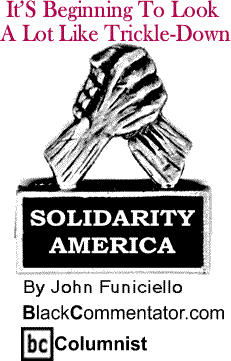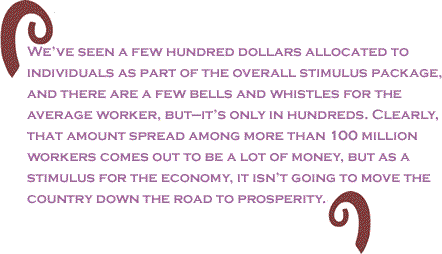
|
|||||||||||||||||||||||

|
|

Custom Search
|
|
 |
|
May Day was observed enthusiastically around the world by millions of workers, in many different ways—except for the U.S. Perhaps, that should read around the world and a few places in America. Even though it was started by American workers and was a uniquely American holiday, it struck fear in the hearts of the people in charge in the U.S. and they decided that workers should have another day. Because May Day was a little messy politically, especially after the Bolshevik Revolution in 1917 and, later, the Soviet Union’s adoption of the first of May as its own workers’ day, people started to scramble for another day for workers in this country. So, every year we have Labor Day, the first Monday in September. But because the first May Day was started in the U.S. by union workers, there are some diehards who won’t let the tradition fade. In a few places each year, they carry on. One of the other places in which the tradition was observed this month is Venezuela. The president of that nation is not held in high esteem by opinion-makers in the U.S., so you might not have heard too much about it in the mass press. That South American nation’s government celebrated this May Day by increasing the minimum wage by 10 percent, an effort to mitigate the effects of the global economic downturn on people who work for wages and tend to be at the bottom of the economic scale. This official action is notable because few such actions are taken by either the U.S. government or the various state governments at this time of distress, a time when hundreds of thousands of wage-earning Americans are losing their jobs and wondering how they’re going to pay the mortgage or rent, in addition to food, clothing, health care, and education for the children. Instead,
we’ve seen a few hundred dollars allocated to individuals as part
of the overall stimulus package, and there are a few bells and whistles
for the average worker, but—it’s only in hundreds. Clearly, that
amount spread among more than 100 million workers comes out to Compare that with the trillions of dollars that have been doled out to the banks, insurance companies, hedge funds masquerading as banks, government-sponsored mortgage giants, and other entities that are “too big to fail.” It appears that they have taken the money—in pots as large as $200 billion or $300 billion at a time—and they have held on to it. They—especially the banks—were supposed to loan the money in communities across the nation and they were expected to do it, right away. The money was supposed to restore the people’s confidence in the banks and the economic system. If that’s happening, it is not very noticeable, although the pundits and many politicians have expressed satisfaction in the slight rise in the stock market over the past few weeks. As everyone knows, however, the stock market is subject to change, often at a moment’s notice.
Nearly 30 years ago, an actor was elected president and he took office with an attitude. Ronald Reagan said that the government he was going to lead was the problem with America. It was his attitude and theory that the rich and Corporate America should continue to be given an advantage in the national economy, so that the largesse could pass on down to the people. It was called “trickle-down” economics by some: Throw the money up to the top and some is bound to trickle down. Gravity, you know. The man who eventually became his vice president, George H.W. Bush, called Reagan’s pipe dream “voodoo economics.” It wouldn’t work, couldn’t work, he said. But, after Reagan defeated him in the Republican primaries and picket him for Veep, he learned to love trickle-down.
By the time Barack Obama became president, the ball was really rolling and he kept up the flow of money to the rich and Corporate America because they were “too big to fail.” And, they all hoped, some of the money would trickle down to the millions who were without gainful employment. Those still working for paychecks were, and are, being asked constantly to give back to the company. That kind of economic theory was known to an earlier generation as: “Feeding the horses so the sparrows can eat.” Stimulus, bail-out, emergency loans—all of that is the trickle down theory practiced on a grand scale. It’s as if we never skipped a beat since the ascendance of the Great Communicator (he could read scripts well). And, what about the workers, you ask? Let’s hope they’re feeding the horses well these days. BlackCommentator.com Columnist, John Funiciello, is a labor organizer and former union organizer.
His union work started when he became a local president of The Newspaper
Guild in the early 1970s. He was a reporter for 14 years for newspapers
in |
|
Any BlackCommentator.com article may be re-printed so long as it is re-printed in its entirety and full credit given to the author and www.BlackCommentator.com. If the re-print is on the Internet we additionally request a link back to the original piece on our Website. Your comments are always welcome. eMail re-print notice
If you send us an eMail message we may publish all or part of it, unless you tell us it is not for publication. You may also request that we withhold your name. Thank you very much for your readership. |
|
| |
|
| May
14, 2009 Issue 324 |
|
| Executive Editor: Bill Fletcher, Jr. |
| Managing Editor: Nancy Littlefield |
| Publisher: Peter Gamble |
| Est. April 5, 2002 |
Printer Friendly Version
in resizeable plain
text format or pdf
format. |
| Frequently Asked Questions |
 |

|
 |
 |
 |
| |
| |





































